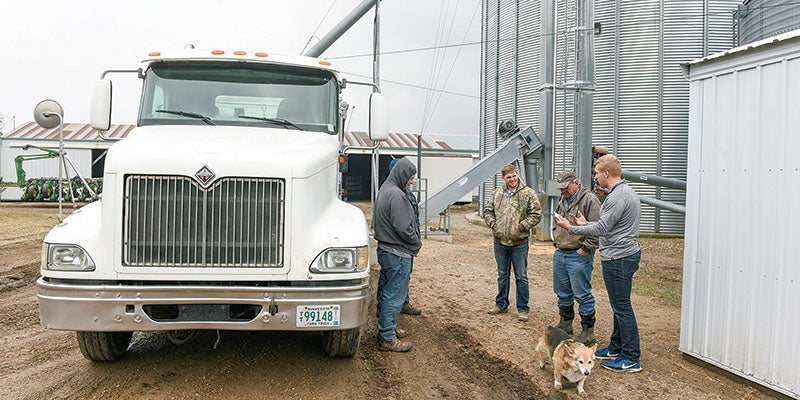Cemetaries, torture and Vietnam
Published 10:27 am Wednesday, May 27, 2009
“A person is a success if they get up in the morning and gets to bed at night and in between does what he wants to do.” —Bob Dylan
I don’t know if this was grammatically correct, however, if this were the case, most of the time, I would consider myself a success.
Memorial Day has come and gone. Actually coming earlier this year to throw in another Holiday day. We took some artificial flowers out to Grandview Cemetery and staked them in the ground above my parents’ gravestone. The dandelions I had dropped off a couple weeks ago were nowhere in sight.
I pulled the tall grass sticking up that the Grandview lawn mower couldn’t reach as my brother and sister-in-law stopped off to pay a short visit before traveling on toward Truman where Darla’s folks were buried and then to another cemetery somewhere else where extended family members were buried.
We headed west to the Bohemian Cemetery near Myrtle where Jeanne commented: “This is a real cemetery.” It is beautiful and very well cared for beneath a scattering of aging tall pines. We arrived too late for the raising of the flag and the gun salute. We stopped by the first Vilt graves where we also paid respect to my cousin Mary Bea, who recently passed away. Then it was on to the Bohemian Hall on down the road for a roasted chicken dinner, with side dishes and cake.
There are fewer old time veterans around it seems. And as for the Vietnam Veterans, that war was different. These soldiers came back quietly and parked their uniform away. Mine sits idle on a hook in the basement.
Roger Coher wrote, regarding Vietnam, quoting Vietnamese: “You and your like are trying to make a war with the help of people who just aren’t interested.” Then he adds: “They want enough rice. They don’t want to be shot at. They want one day to be much the same as another. They don’t want our white skins around telling them what to do.” In the end there were roughly 58,000 American deaths. Three million Vietnamese died.
A few younger soldiers were in the Bohemian Hall dressed in army-camouflaged uniforms. I guessed they might have served in Iraq or Afghanistan, but didn’t ask. An older legion member was talking to the gentleman across the table about the shortage of old time soldiers around these days.
Last Saturday, I had an interesting conversation at the Poppe farm with my brother-in-law, whose brother recently retired from the Army but is still doing consulting work with the armed forces.
We discussed torture; the torture I believe that created more hatred and opposition to us. Kevin felt that torture is a way of life in war. Obama said Guantanamo “likely created more terrorists around the world than it ever detained.” Mr. Cheney talks how torture may have saved thousands of lives. My brother-in-law believes torture is always going to be there. Perhaps he’s right.
I think back to the POW camp at brigade headquarters in Vietnam. There, a few prisoners who were corralled within a barb-wired fenced area dressed in their traditional black pajamas. To me, they looked a little frail, healthy but not happy, and I wondered how they got there.
Another time, near brigade headquarters, a chopper landed on the chopper pad, and two soldiers pulled an aging woman out in a forceful way with one of her breasts somehow exposed.
It was somewhat rough, but of course I didn’t know the circumstances.
I remember the dining area constructed for officers to dine in with glass windows, quite unlike our dining tent. They too may have had to use outhouses just as we did. In the jungle, they didn’t have that.
If you haven’t read “The Things They Carried” by Austin’s own Tim O’Brien, do so. The chapter that stood out to me is titled On the Rainy River. It’s a story he had never told before. I hope you read it. It was a finalist for the Pulitzer Prize.
Tim later read in Austin presented by the Page Turners.
My brother-in-law also talked over the time he and a friend flew to Cuba for some scuba diving several summers back. They flew to Mexico first and from there on to Cuba. Kevin described the process of getting there as well as some of the conversations and dialogs they had with Cuban people.





